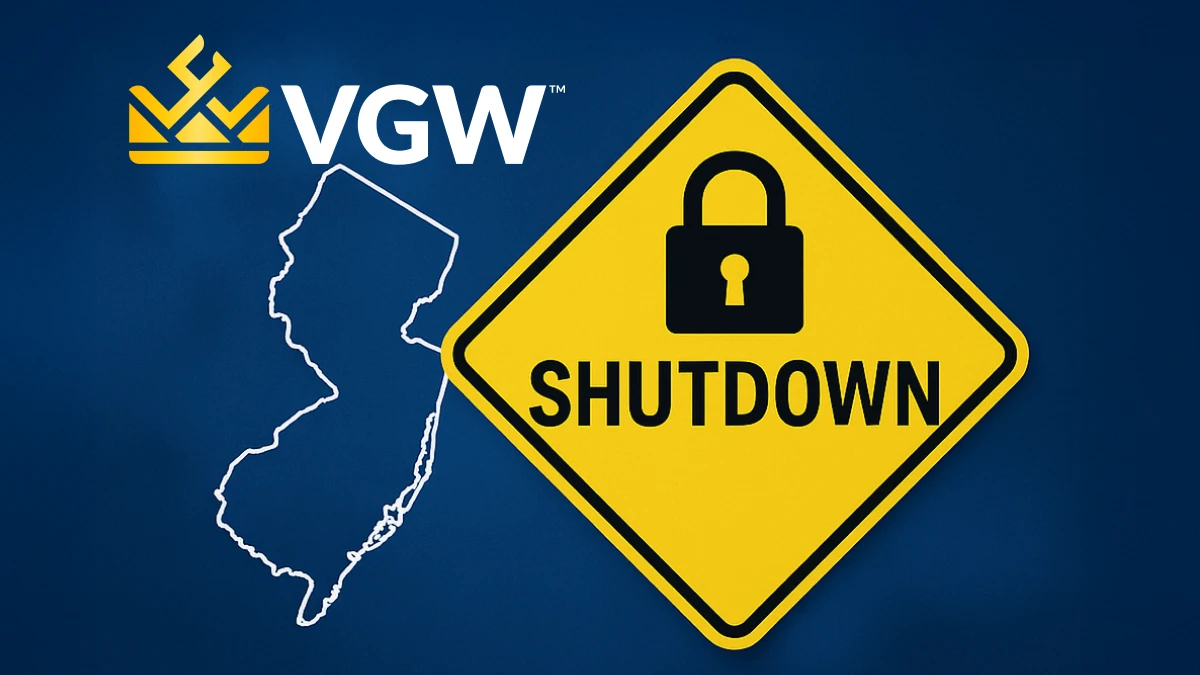Pennsylvania Cracks Down on Unlicensed Sweepstakes Casinos with 18 Cease-and-Desist Orders

1.0
Default
The Pennsylvania Gaming Control Board has become the latest state to issue cease and desist orders to a total of 18 sweepstakes casino platforms. The platforms consist mostly of offshore entities, but some are also based in the United States. All 18 recipients of the C&D orders have complied, but counsels state that the definition of gambling in Pennsylvania needs to be amended, as it is easy for sweepstakes operators to circumvent the law and find loopholes.
The Pennsylvania Gaming Control Board is stepping up efforts to combat the rise of unlicensed sweepstakes casinos operating in the state. During a recent Gaming Oversight Committee hearing, the PGCB disclosed that it has issued 18 C&D letters to sweepstakes-style online casinos that have been conducting business in Pennsylvania without proper authorization.
These platforms, often referred to as "sweeps" sites, offer social casino-style games that use a sweepstakes model to award prizes. While they technically operate using virtual currency and skirt federal gambling definitions, many state regulators, including those in Pennsylvania, consider them a growing threat to the regulated gaming market.
A challenge to enforce
According to PGCB officials, most of the companies targeted are based offshore, though several have US origins - and some were even found to be conducting business within Pennsylvania's borders. Despite their activities, none of the 18 companies issued cease-and-desist letters held interactive gaming licenses from the PGCB.
Cyrus Pitre, Chief Enforcement Counsel, described the situation as a 'whack-a-mole' challenge. "As soon as one operation is shut down, another appears to take its place," he said. Fortunately, all 18 operators contacted so far have complied with the cease-and-desist orders.
However, the PGCB's enforcement capabilities are limited. Since these platforms do not fall under the traditional definition of gambling as outlined in Pennsylvania law, the agency lacks the authority to pursue legal action or impose penalties on the companies behind them. It can only issue cease-and-desist warnings.
That regulatory gap is now under increasing scrutiny. Chief Counsel Steve Cook emphasized the need to revise the legal language within Pennsylvania's Gaming Act to provide clarity and close existing loopholes that allow sweepstakes casinos to operate unchecked.
"Unfortunately, in the area of interactive gaming, we are significantly hamstrung by the specific language of our enabling statute," Cook said. He cited Chapter 13B of the Gaming Act, which includes conflicting sections that simultaneously appear to ban unlicensed online gaming while also limiting PGCB oversight to licensed entities.
Concerns about sweepstakes casino operators regarding responsible gaming and more
Cook also referenced a December 2023 ruling by the Commonwealth Court, which determined that the current definitions do not extend PGCB authority to unlicensed gambling operations - a decision that significantly impacts the board's regulatory reach.
The court held that this language wasn't nonsensical - which I believe it is, Cook said. It essentially reinforces the idea that the PGCB only has control over entities it licenses, even when those outside the system may be operating illegally.
Both Cook and Pitre expressed concerns about the unchecked nature of sweepstakes casinos, noting that unlike regulated platforms, these sites are not required to undergo fairness testing, verify users' ages, or provide responsible gaming tools. That lack of oversight, they warned, exposes consumers to potential harm and undermines Pennsylvania's legal gaming industry. These platforms are not subject to any consumer protection measures, Cook added. They don't play by the same rules, and that makes them a real risk.
Russ Diamond, Chairman of the Gaming Oversight Committee, acknowledged the dilemma facing the PGCB and affirmed his commitment to updating the law. He expressed support for legislative action that not only addresses current challenges but also anticipates future developments in the rapidly evolving online gambling space. "We have to do it in a way that not just takes care of what's going on today," Diamond said, "but also what could be coming in a year, five years, or even a decade from now."
With support building among lawmakers, it appears that the PGCB may soon gain clearer legal tools to regulate - or shut down - unlicensed sweepstakes casinos operating in Pennsylvania. Until then, the board remains vigilant, using its limited powers to preserve the integrity of the state's regulated gaming environment.




















